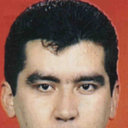Comparison of four scoring systems for risk stratification of upper gastrointestinal bleeding.
Palavras-chave
Resumo
UNASSIGNED
This study aimed to compare the performances of the Glasgow-Blatchford Bleeding Score (GBS), pre-endoscopic Rockall score (PRS), complete Rockall score (CRS), and Cedars-Sinai Medical Center Predictive Index (CSMCPI) in predicting clinical outcomes in patients with upper gastrointestinal bleeding (UGIB).
UNASSIGNED
Patients who were admitted to the emergency department because of UGIB and underwent endoscopy within the first 24 hour were included in this study. The GBS, PRS, CRS, and CSMCPI were propectively calculated. The performances of these scores were assessed using a receiver operating characteristic curve.
UNASSIGNED
A total of 153 patients were included in this study. For the prediction of high-risk patients, area under the curve (AUC) was obtained for GBS (0.912), PRS (0.968), CRS (0.991), and CSMCPI (0.918). For the prediction of rebleeding, AUC was obtained for GBS (0.656), PRS (0.625), CRS (0.701), and CSMCPI (0.612). For the prediction of 30-day mortality, AUC was obtained for GBS (0.658), PRS (0.757), CRS (0.823), and CSMCPI (0.745).
UNASSIGNED
These results suggest that effectiveness of CRS is higher than that of other scores in predicting high-risk patients, rebleeding and 30-day mortality in patients with UGIB.


